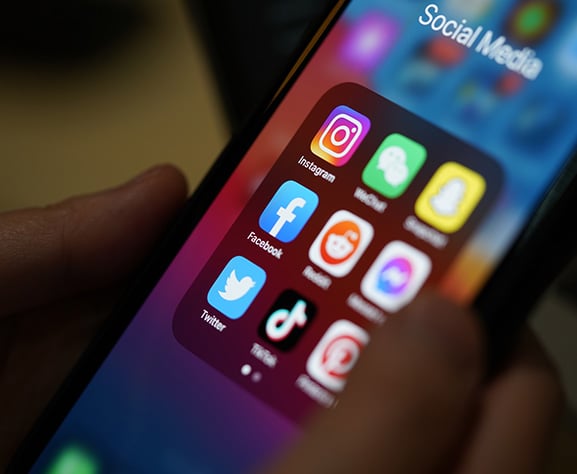Social Media Background Checks
Reviewing your candidates’ and employees’ online activity in a thorough, compliant manner isn't something that just anyone can do (including your HR department). But Foley can.



What is a Social Media Background Check?
Foley’s social media background check solution identifies and flags the following: Hate Speech, Insults and Bullying, Narcotics, Obscene Language, Self-Harm, Threat of Violence, Toxic Language, Drug-Related Images, Explicit/Racy Images, and Violent Images.

The Only Social Media Screening Tool You Need to Hire the Right Fit for Your Organization
The Only Social Media Screening Tool You Need to Hire the Right Fit for Your Organization
Powered by Unparalleled Artificial Intelligence
Our rigorous AI solution is powered by the human touch, so you can have complete confidence in our background check findings.
Compliant with EEOC, FCRA & State Privacy Laws
Foley provides relevant authorizations and disclosures and gets explicit permission from the candidate or employee to conduct a social media screen, which limits your risk for liability.
Protected Class Information is Redacted
Every job candidate has a right to privacy. Our background check social media process removes protected class information, such as race, color, age, sex, religion, and disability, from the equation.
Available with Social Media Monitoring Bundle
Monitoring your employees' ongoing social media activity will alert you of any behaviors that go against your company’s mission and values.
Featured Article

How Does Social Media Monitoring in Background Checks Work?
Get the answers to the most common questions about social media screens, such as, “What does a social media background check consist of?”
Social Media Background Checks for Any Industry

Run a Drug-Free Retail Business
The use of narcotics and obscene language can hinder the high standards you hold your retail workers to. Foley’s social media screens unveil instances of these choices, so you can make the right customer-facing hiring decisions for your store.

Sustain Compassionate, Responsible Healthcare Standards
Healthcare employees regularly interact with people who are in their most vulnerable state. Social media background checks can reveal displays of questionable behaviors, like hate speech and threats of violence, that are unacceptable for your caregivers to take part in.

Employ Ethical Waste Management Drivers
Your drivers visit customers’ homes along their routes. Behaviors such as drug use and violence are simply unacceptable, and checking for these choices in social media background checks helps uphold your business’ trusted reputation.
×
Fill out this form and a member of our team will reach out shorty.
See Foley’s Social Media Background Checks in Action
You’ve found the right social media screening tool. Now it’s time to get a free demo of it. Fill out the form to schedule your demo appointment with our background check experts.
.png)
Whether you’re looking for a quick background check or a comprehensive DOT compliance solution, Foley can help.


